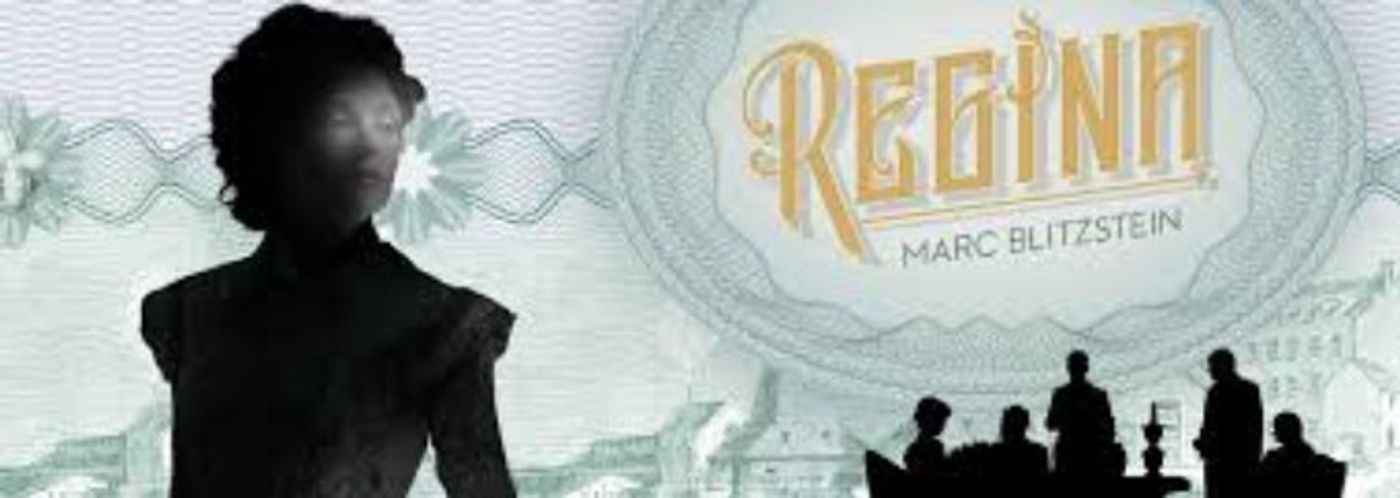Review: REGINA at Opera Theater Of St. Louis

For certain xenophobic East Coast opera lovers, the words "St.Louis" and "Opera" could seem like an oxymoron. However, this would be an invalid assumption. The Opera Theater of St. Louis, currently based on the beautiful Webster University campus just outside of the downtown area, has been presenting a varied and interesting program of well-known and not so well known operas since 1976. What makes this summer festival unusual is that all of their productions are performed in English.
While it can be somewhat jarring to hear Italian opera (for example) performed in English (because the sung English translations do not always fit the music), operas which are originally composed in English allow OTSL to perform pieces by composers whose works are not frequently heard elsewhere. One of these productions in repertory this month is Marc Blitzstein's 1949 "Regina."
Although its initial run of only 56 Broadway performances was disappointing (critics loved it, audiences not so much), Blitzstein revised the opera and when it reappeared at the City Opera a few years later it was much more successful and stayed in the company's catalogue from that time forward. The piece has undergone more revisions in the ensuing years, and the definitive version prepared for the Scottish Opera is the one being presented by OTSL.
Based entirely on the 1939 play "The Little Foxes" by Lillian Hellman, "Regina" is set in small town Alabama circa 1900. Like many decaying Southern families (shades of William Faulkner and Tennessee Williams), this particular family is obsessed with money and power, both of which they already seem to possess in abundance. But....Regina and her brothers Oscar and Ben want more. One can almost hear Big Daddy's (from "Cat on a Hot Tin Roof') stentorian cries of "Mendacity! Mendacity!" in the background as the brothers and sister plot and scheme their way to what they think will be a fortune. The story takes place over the course of perhaps 10 days, but what a momentous 10 days it is. Blitzstein wrote his music in a pastiche of styles: spirituals, ragtime, Dixieland jazz, blues, Victorian parlor song, American folk song, Broadway ballad, ballroom dances of different styles and even a little something like Gilbert and Sullivan for good measure. . Somehow it all works as a cohesive unit and helps create some unforgettable characters.
Leonard Bernstein, a close friend of Blitzstein's who considered Blitzstein his mentor as well, said that Blitzstein's method had been to give this nasty, venal character music that was deceptively sweet. "The music reeks with magnolia, Southern gentility, splendiferous hospitality, honeyed drawls," Bernstein said. Bernstein's famous take on the opera was that it was a story about "ugly people engaged in ugly dealings with each other."
Soprano Susan Graham played "Regina." A major performer at the Metropolitan Opera, Ms. Graham's powerful voice reached every corner of the theater, and although her Alabama accent sometimes disappeared, her Regina was always a tower of fury and strength. Ms. Graham's portrayal of a woman seemingly without a conscience was almost frightening in its intensity. At the end of the opera, Ms. Graham's Regina was a woman who had gained the whole world but had lost her soul in the process (along with her precious daughter), and the wreckage of Regina's life and the destruction she caused was evident in the rawness of Ms.Graham's voice and in her expressive face. It was a bravura performance.
"Birdie Hubbard" was the character at the emotional center of the opera. Married by "Oscar Hubbard" only for her money, Birdie wanted only to love and be loved. Life had not turned out well for her, because she was despised by both her husband and her son, the not too bright "Leo." Metropolitan Opera star Susanna Phillips sang Birdie's heart-rending "Lionnet" and "Birdie's Aria" with exquisite beauty and pathos, particularly the latter piece, and left the audience in tears. Sobs were audible and the applause stopped the show.
The Met's favorite evil bass-baritone James Morris was the epitome of sneering superiority as "Ben Hubbard." His rich, resounding voice was the voice of avarice and authority which filled the theater. As "Oscar Hubbard", baritone Ron Raines gave a performance that was vocally fierce and emotionally devastating, especially his treatment of Birdie. There were gasps of shock from the audience when he slapped her for her "stupidity." Regina's husband "Horace", one of the few decent characters in the opera, was compellingly sung by bass Kristopher Irmiter. The music composed for this character was especially descriptive during his final renunciation of Regina.
The role of "Addie", the family housekeeper, was small in the original play. Blitzstein expanded it and gave it much more importance in his opera. Melody Wilson, a rising young mezzo-soprano, gave a sympathetic and beautifully sung interpretation of Addie's character. In the role of Regina's daughter "Alexandra", soprano Monica Dewey brought a sweet plaintiveness to her character, her aria "What will it be?" expressing her innermost thoughts with nuanced dynamics and emotional shading.
Everyone in the fine ensemble cast and chorus should be noted for their outstanding diction. Although they were projected on two screens, the supertitles were not necessary. The lighting was evocative of the period with projections cleverly expressing the emotions roiling around onstage. The well designed set was dominated by a very long staircase that was almost a character by itself. The orchestra, comprised of outstanding musicians from the St. Louis Symphony, were ably led by Stephen Lord.
"Regina" deserves more outings and love than it has had in its 69 year history. If you can get to St. Louis to see it before it disappears again, run, don't walk, to get your tickets for the final performances.
Reader Reviews
Videos


